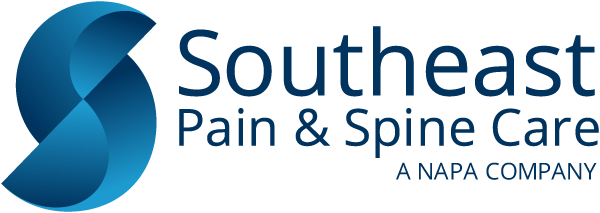Back Pain
What should I do if I experience back pain?
If you experience back pain that continues or worsens over the course of 2 weeks, you will benefit from an evaluation by a pain management doctor. Early intervention is key to heading off long term back pain.
If a patient has problems with bowel or bladder control, numbness in the groin or rectal area, or leg weakness they should seek help immediately. These symptoms are a sign of nerve damage and can be irreversible if not treated appropriately.
What are causes of back pain?
The causes of back pain include:
- Overuse, unaccustomed activity, and excessive lifting can cause back pain
- Muscle spasm or ligament strain can cause back pain
- Disc disease, arthritis, congenital spine abnormalities, and tumors can cause back pain
- Spinal stenosis, which is a constriction of the spinal canal, whether congenital or caused by degenerative discs and/or bulging discs can cause back pain
- Disc herniation, extrusion of disc material which compresses the spinal cord or a nerve root
- Spondylolithesis, which is when one vertebra slips forward onto another vertebra immediately below can cause back pain
- Pregnancy can cause back pain – muscles stretch and ligaments and body alignment is affected by a growing fetus
- Infections cause back pain – these are rarely a cause, but bacteria can invade discs, vertebrae or joints causing an infection that can lead to back pain
What are common activities that cause back pain?
For the overwhelming majority of back pain sufferers, the problem usually stems from overuse, an unaccustomed activity, or excessive lifting and twisting. Other causes include herniated discs, and disc impingement on a nerve root in the spine. Less frequent causes of back pain include trauma and other disc abnormalities (which become more common with age).
What can I do at home to help my back pain?
- Rest and restrict activity
- Use a pillow under your head, between your knees, and under an upper arm when resting on your side
- Use a pillow under your knees when on your back
- Over-the-counter pain relievers, including NSAID medications (non-steroidal anti-inflammatory drugs) such as Ibuprofen® or Tylenol®
- Use cold immediately after an injury, and then apply heat
What are the alternatives to surgery for my back pain?
There are many non-surgical options available for diagnosing and treating back pain. These include:
- Epidural Steroid injections
- Trigger point injection therapy
- Spinal cord stimulators
- Transcutaneous Electrical Nerve Stimulation (low-voltage currents to tissues to help decrease pain)
- Nerve block injections
- Percutaneous discectomy
- Lower back pain exercises
- Strength training routines
- Wide variety of pain medications
For additional information on back pain, please call 866-228-1108 to request an appointment with one of our Southeast Pain and Spine Care pain management providers or click to Request an Appointment.


